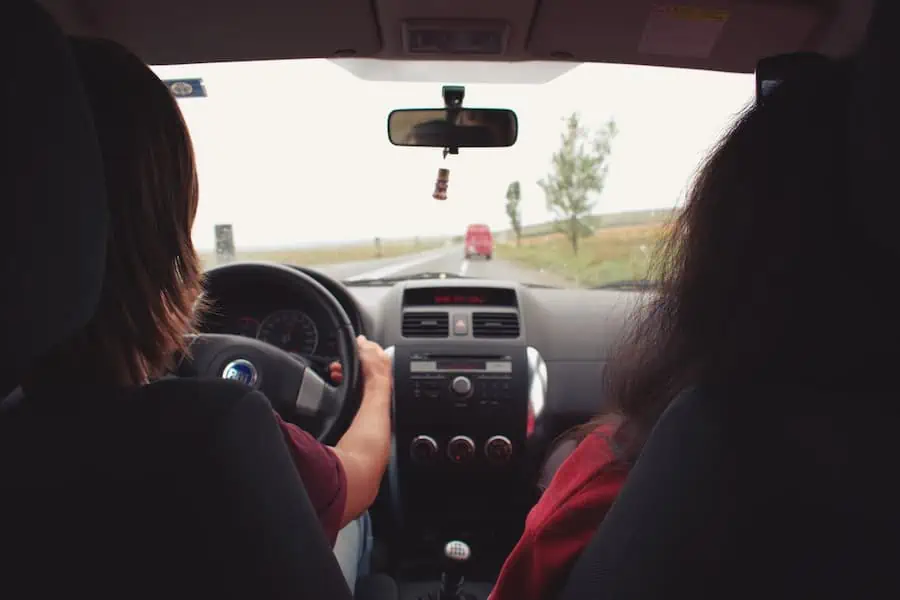Most people understand the dangers of distracted driving. Yet, most people associate distracted driving with texting and driving. While texting while driving is certainly dangerous, it’s not the only distraction to be aware of. These are some of the most common distractions that drivers frequently engage in.
Talking On The Phone
Talking on the phone while driving can be just as dangerous as texting and driving. It may seem less harmful since you don’t have to actively look down at your phone to read or type a message, but communicating on the phone can pull your focus elsewhere. In fact, more states are making it illegal to talk on a handheld device. However, while it may be illegal in these states to talk on the phone while driving, most states allow using hands-free devices.
Emailing
Emailing is similar to texting and driving. In fact, emailing may require even more attention and focus when writing or reading emails. In many states, emailing is illegal, just as texting and driving. Texting and emailing are also among the easiest distractions to prove. Drivers involved in a car accident with a distracted driver may be entitled to car accident settlements.
Interacting With A Navigation System
Even inputting directions into your navigation system can be considered a distraction. It’s best to program your directions to intended routes before leaving home. Interacting with a navigation system can be just as dangerous as texting and driving, especially if you’re unfamiliar with the device or technology.
Eating While Driving
Approximately 70% of drivers admit to eating while driving. Consuming a meal or snack while driving takes your focus off the road, which can be dangerous. At first thought, it may not seem as dangerous as other distractions, but eating while driving accounts for its own significant share of accidents. Studies have found that eating while driving can increase your chances of being in a car accident up to three to four times.
Applying Makeup
Even applying makeup can be dangerous when driving. Your reaction time slows down when completing any task other than driving. Even quickly looking up in your rearview mirror to check your makeup can be enough to cause an accident. Some drivers may wait until they stop at a red light, which can lead to you being rear-ended or side swiped by other drivers who expect you to begin moving. Certain damages can put you and your passengers at risk and reduce the resale value, especially if your car won’t start or drive after an accident.
Tending To Children
Many parents don’t realize that tending to children in the passenger or rear seats can also be extremely dangerous. Your child may insist that you turn around and look at something or reach back to pick up something they dropped, but both situations cause you to redirect your focus for too long.
The good news is that many car manufacturers are learning to recognize the dangers and necessity of tending to backseat children. Many of today’s car manufacturers are making vehicles with rear seat cameras or communication tools. This means you can check on your backseat passenger or have a conversation with them without having to turn your head around.
Talking With A Passenger
Even talking with a passenger can be a dangerous distraction. Many states don’t allow teen drivers to drive with underage passengers until they gain more driving experience. While it may not always be possible to avoid communicating with your passengers when driving, try to prioritize your attention and focus on the road ahead.
Thinking
Many drivers may not realize that getting lost in thought can be a dangerous distraction. If you have something on your mind, you may react to dangerous driving situations slower. You may also brake slower or take longer to notice a stopped car in front of you. While you may be unable to control your thinking, you can try to clear your mind before getting behind the wheel.
The Dangers Of Distracted Driving
Distracted driving is extremely dangerous, accounting for a large percentage of auto accidents each year. Distracted drivers are more likely to be in an accident, and that accident is more likely to incur more expensive damages. Distracted driving is illegal in all 50 states, meaning you could be subject to expensive fines and penalties, even if you’re not in an auto accident.
If you do end up causing an auto accident and you’re found to be at fault due to distracted driving, you could be personally liable. Finally, distracted driving is all too common, meaning when you engage in it, you’re also less likely to respond to another driver who may also be distracted. The chances are a majority of the drivers around you on the road are distracted in some way. Taking extra precautions to stay alert and focused can help make the roads safer for every driver.








